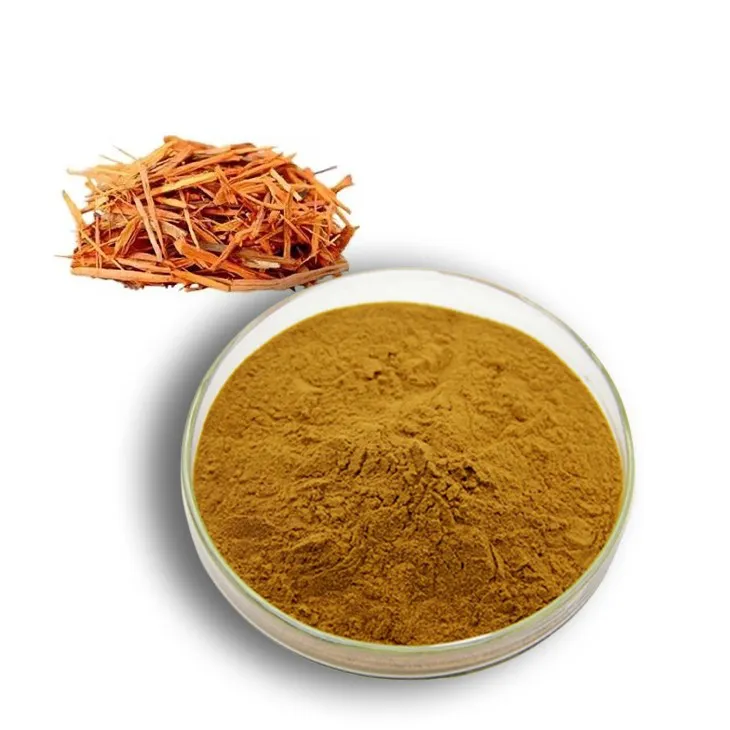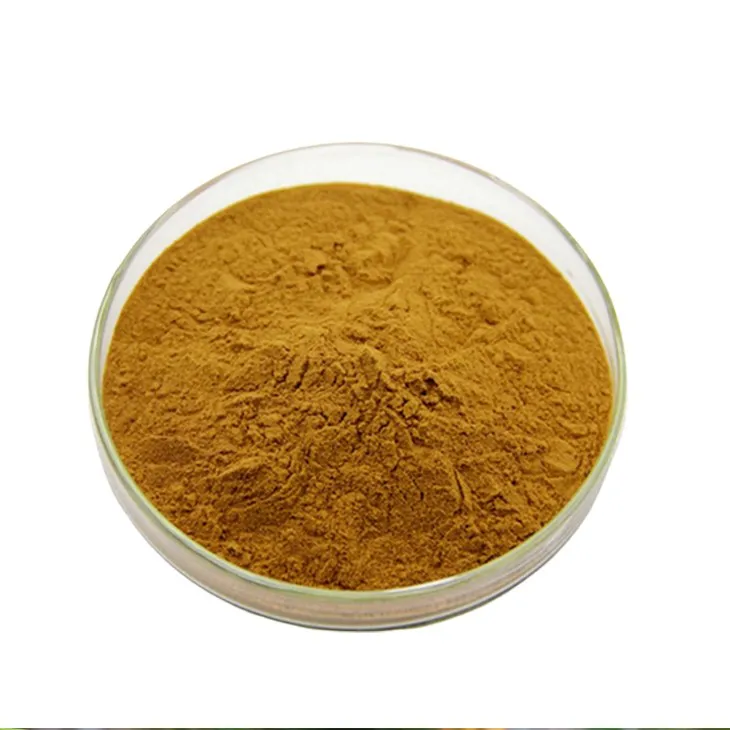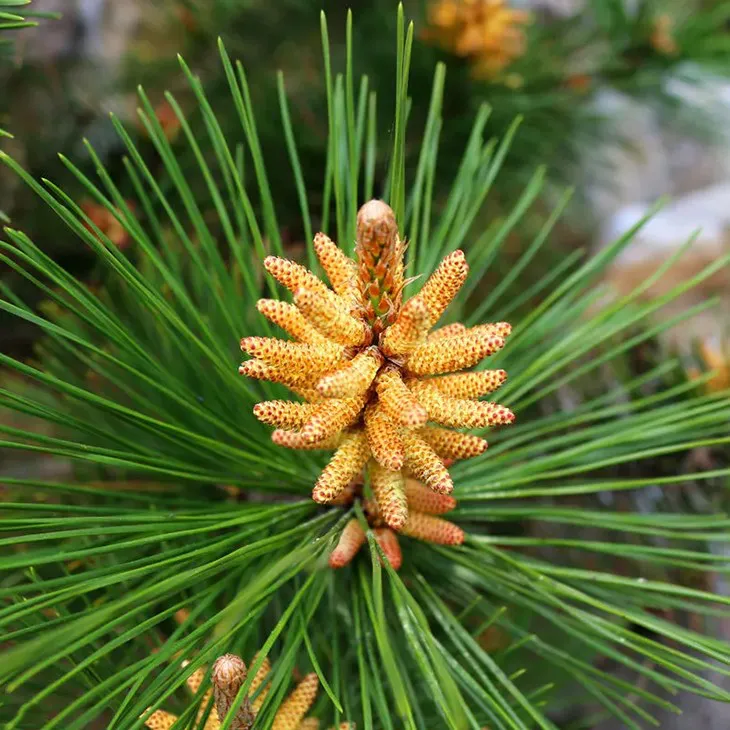- 0086-571-85302990
- sales@greenskybio.com
High - quality yellow pine extract products.
2024-12-01

Introduction to Yellow Pine Extract
High - quality Yellow Pine Extract products are a valuable resource with diverse applications. Yellow pine, a type of pine tree, has been found to possess a variety of useful components. The extraction of these components results in a product that has great potential.

Applications in the Agricultural Sector
In the agricultural sector, Yellow Pine Extract products can be used as a natural pesticide or growth enhancer.
As a Natural Pesticide
This is because it may contain substances that can repel pests. Many traditional pesticides are synthetic chemicals that may have negative impacts on the environment and non - target organisms. However, yellow pine extract offers a more environment - friendly alternative. For example, certain compounds in the extract might interfere with the sensory systems of pests, making the plants less attractive to them or even causing them to avoid the area altogether.
As a Growth Enhancer
It can also stimulate plant growth. The extract may contain nutrients or growth - promoting hormones that can benefit plants. These substances can help plants in various ways, such as improving root development. A stronger root system allows plants to better absorb water and nutrients from the soil, leading to healthier growth. Additionally, it may enhance the plant's ability to withstand environmental stresses like drought or extreme temperatures.

Applications in the Manufacturing Industry
In the manufacturing industry, yellow pine extract can be used as an additive in certain products to improve their performance or durability.
In Wood - based Composites
For instance, in the production of wood - based composites, yellow pine extract may enhance the bonding strength between different materials. Wood - based composites are often made from a combination of wood fibers, resins, and other additives. The extract can interact with the resins and fibers, creating a stronger bond. This not only improves the structural integrity of the composite but also its resistance to factors such as moisture and mechanical stress.
In Other Manufacturing Areas
Besides wood - based composites, yellow pine extract can potentially be used in other manufacturing areas. For example, in the production of certain plastics, it might be added to improve the flexibility or heat resistance of the plastic. In the textile industry, it could be used to impart certain properties to fabrics, such as increased water repellency or enhanced durability. However, further research is needed to fully explore these applications.

Quality Characteristics of High - quality Yellow Pine Extract Products
When it comes to quality, high - quality yellow pine extract products are characterized by their high purity, accurate composition, and consistent performance.
High Purity
High purity is crucial for the effectiveness of the extract. Impurities in the extract can interfere with its intended functions. For example, if there are contaminants in the extract used as a pesticide, they might not only reduce the pesticidal activity but also potentially harm the plants or the soil. In the manufacturing context, impurities can affect the performance of the end product. To ensure high purity, strict purification processes are employed during extraction. These may include filtration, centrifugation, and chromatography techniques to separate the desired components from unwanted substances.
Accurate Composition
The accurate composition of the yellow pine extract is also important. The composition determines the specific properties and functions of the extract. Manufacturers need to have a precise understanding of the composition to ensure that the extract can perform its intended tasks. This requires careful analysis and quality control during the extraction process. Advanced analytical techniques such as mass spectrometry and gas chromatography are used to identify and quantify the components in the extract.
Consistent Performance
Consistent performance is another key quality characteristic. Whether it is used in agriculture or manufacturing, users rely on the extract to perform in a predictable manner. To achieve consistent performance, meticulous quality assurance procedures are carried out at every stage of production, from raw material collection to final product packaging.
Raw Material Collection and Preparation
The process of obtaining high - quality yellow pine extract starts with the collection and preparation of raw materials.
Selection of Yellow Pine Trees
The selection of yellow pine trees is the first step. Only healthy and mature trees should be chosen. Young or diseased trees may not contain the optimal levels of the desired components. Additionally, the location of the trees can also influence the quality of the extract. Trees growing in certain regions with specific soil and climatic conditions may produce higher - quality extract.
Harvesting and Preparation
Once the appropriate trees are selected, they need to be harvested carefully. The harvesting process should be carried out in a sustainable manner to ensure the long - term availability of yellow pine resources. After harvesting, the tree parts, such as the bark, needles, or wood, which are rich in the target components, are collected and prepared for extraction. This may involve cleaning, drying, and grinding the materials to the appropriate particle size to facilitate the extraction process.
The Extraction Process
The extraction process is a crucial step in obtaining high - quality yellow pine extract products.
Choice of Solvent
The choice of solvent is very important. Different solvents can extract different components from the yellow pine materials. For example, some solvents may be more effective in extracting certain bioactive compounds, while others may be better for extracting resins or other substances. Commonly used solvents include ethanol, methanol, and water - based solvents. The choice of solvent also needs to take into account factors such as safety, environmental impact, and cost.
Extraction Methods
There are several extraction methods available, such as maceration, percolation, and Soxhlet extraction.
- Maceration involves soaking the prepared yellow pine materials in the solvent for a period of time. This allows the solvent to penetrate the materials and dissolve the desired components.
- Percolation is a process where the solvent is continuously passed through the yellow pine materials. This method can be more efficient in extracting components compared to maceration as it ensures a continuous supply of fresh solvent to the materials.
- Soxhlet extraction is a more intensive extraction method. It uses a Soxhlet apparatus to repeatedly reflux the solvent over the yellow pine materials. This method is often used when a more complete extraction of components is required.
Quality Assurance and Testing
Quality assurance and testing play a vital role in ensuring the high quality of yellow pine extract products.
During the Production Process
During the production process, quality control checks are carried out at various stages.
- For example, at the raw material collection stage, samples are tested to ensure that the yellow pine materials meet the required quality standards.
- During the extraction process, the composition of the extract is monitored to ensure that it is within the desired range.
- After the extraction, the purity of the extract is tested using techniques such as chromatography to ensure that there are no excessive impurities.
Final Product Testing
Before the yellow pine extract products are packaged and sold, final product testing is carried out.
- This includes testing for the overall quality, performance, and safety of the product.
- The product is tested for its effectiveness as a pesticide or growth enhancer in the case of agricultural applications.
- In manufacturing applications, the product is tested for its ability to improve the performance or durability of the end products.
Future Prospects of High - quality Yellow Pine Extract Products
The future looks promising for high - quality yellow pine extract products.
Research and Development
Continued research and development are expected to uncover more potential applications and improve the extraction and production processes. Scientists are constantly exploring new ways to enhance the quality and functionality of yellow pine extract. For example, research is being carried out to identify new bioactive compounds in yellow pine and develop more efficient extraction methods for these compounds.
Market Expansion
As awareness of the benefits of natural products increases, the market for high - quality yellow pine extract products is likely to expand. In the agricultural sector, there is a growing demand for natural pesticides and growth enhancers. In the manufacturing industry, the trend towards using more sustainable and natural additives also provides opportunities for yellow pine extract products. However, challenges such as regulatory compliance and competition from other natural or synthetic products need to be addressed.
FAQ:
What are the main applications of high - quality yellow pine extract products?
High - quality yellow pine extract products have diverse applications. In the agricultural sector, they can be used as a natural pesticide or growth enhancer. In the manufacturing industry, they can be used as an additive in certain products like wood - based composites to improve performance or durability.
How does yellow pine extract work as a natural pesticide?
Yellow pine extract may work as a natural pesticide because it may contain substances that can repel pests. These substances interact with the pests in a way that deters them from approaching or harming the plants.
What makes high - quality yellow pine extract products high - quality?
High - quality yellow pine extract products are characterized by their high purity, accurate composition, and consistent performance. This is achieved through meticulous quality assurance procedures at every stage of production, from raw material collection to final product packaging.
How can yellow pine extract enhance the bonding strength in wood - based composites?
The exact mechanism may not be fully understood yet, but it is believed that certain components in the yellow pine extract interact with the different materials in the composites, resulting in an enhanced bonding strength.
Are there any potential drawbacks to using yellow pine extract products?
As of now, there is no widespread evidence of major drawbacks. However, more research may be needed to fully understand any long - term effects or potential interactions in different environments. Also, like any natural product, its effectiveness may vary depending on factors such as the source of the yellow pine and the extraction method.
Related literature
- The Components and Potential of Yellow Pine Extracts"
- "Yellow Pine Extract in Agricultural and Industrial Applications: A Review"
- "Quality Assurance in Yellow Pine Extract Production"
- ▶ Hesperidin
- ▶ citrus bioflavonoids
- ▶ plant extract
- ▶ lycopene
- ▶ Diosmin
- ▶ Grape seed extract
- ▶ Sea buckthorn Juice Powder
- ▶ Beetroot powder
- ▶ Hops Extract
- ▶ Artichoke Extract
- ▶ Reishi mushroom extract
- ▶ Astaxanthin
- ▶ Green Tea Extract
- ▶ Curcumin Extract
- ▶ Horse Chestnut Extract
- ▶ Other Problems
- ▶ Boswellia Serrata Extract
- ▶ Resveratrol Extract
- ▶ Marigold Extract
- ▶ Grape Leaf Extract
- ▶ blog3
- ▶ blog4
-
The best lemon juice powder in nature.
2024-12-01
-
Organic Vitamin K2 Powder Suppliers
2024-12-01
-
Bulk purchase of L - tyrosine.
2024-12-01
-
Vitamin K2 Manufacturers
2024-12-01
-
100% Pure Natural Rutin.
2024-12-01
-
Chinese Citrus Bioflavonoid Suppliers.
2024-12-01
-
Curcumin Extract
2024-12-01
-
Lemon Extract
2024-12-01
-
Maca Extract
2024-12-01
-
Nutmeg Extract
2024-12-01
-
Andrographis Paniculata Extract Powder
2024-12-01
-
Jujube Extract
2024-12-01
-
Giant Knotweed Extract
2024-12-01
-
Agaricus Blazei Extract
2024-12-01
-
Oat Straw Extract Powder
2024-12-01
-
Natural grape seed extract
2024-12-01





















